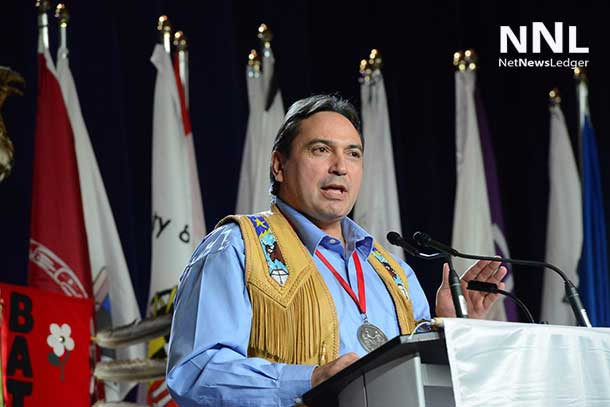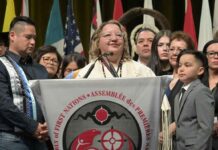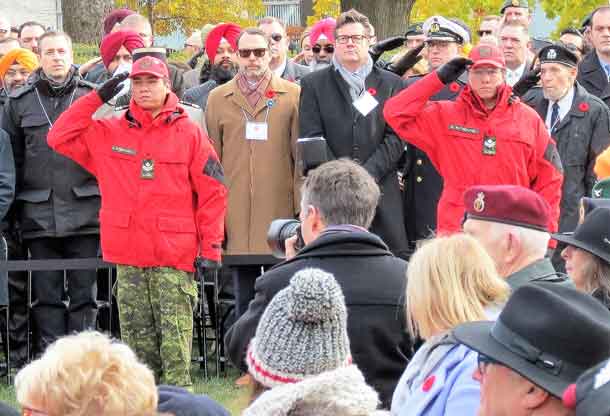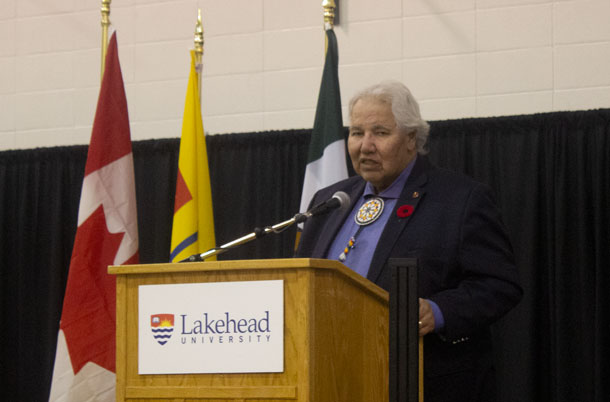
OTTAWA – Assembly of First Nations (AFN) National Chief Perry Bellegarde today called for a First Ministers meeting in 2018 to address First Nations priority issues, saying full participation of First Nations in the labour force and the economy requires recognition that First Nations inherent rights, title and jurisdiction lives alongside the assumed sovereignty of the Crown.
“We have an underutilized workforce with the potential to add billions to the economy,” National Chief Bellegarde said. “The only way to unleash that potential is to address the reality of First Nations inherent rights and to invest in education and skills training, provide access to capital, and necessary infrastructure and services to close the socio-economic gap. In order to achieve full participation in the labour force and the economy we need to advance the dialogue with First Ministers on First Nations jurisdiction and assumed Crown sovereignty.”
National Chief Bellegarde addressed Prime Minister Trudeau and the Premiers today at the First Ministers Meeting which focused on the economy.
A National Aboriginal Economic Development Board study estimates that Canada could add $27.7 billion per year to its economy through a properly educated, trained and paid Indigenous workforce. This would have the added benefit of saving $2.2 billion annually in social costs.
At today’s meeting, National Chief Bellegarde called on all First Ministers to support holding a First Ministers Meeting on First Nations priority issues in 2018 to discuss:
- A National Action Plan for the implementation of the United Nations Declaration on the Rights of Indigenous Peoples.
- Dialogue toward a new fiscal relationship, including revenue and resource revenue sharing, and respect for First Nations government taxation powers.
- First Nations participation in the transition to a clean energy economy.
“The wealth of this land lies in the traditional territories and ancestral lands of First Nations,” said National Chief Bellegarde. “Any development must be sustainable, and respect our rights and responsibilities to our lands. This means respecting Treaty and inherent rights, and the UN Declaration. It means real partnership and engagement throughout all stages of any proposed development.”
In 2014, growth in resource development investment was estimated at $650 billion over 10 years. Much of this development would fall within the traditional territories, ancestral lands, and Treaty areas of First Nations. The United Nations Declaration on the Rights of Indigenous Peoples is the roadmap to reconciliation, including economic reconciliation. First Nations are calling for its full implementation, supported by a national action plan and federal legislation.






